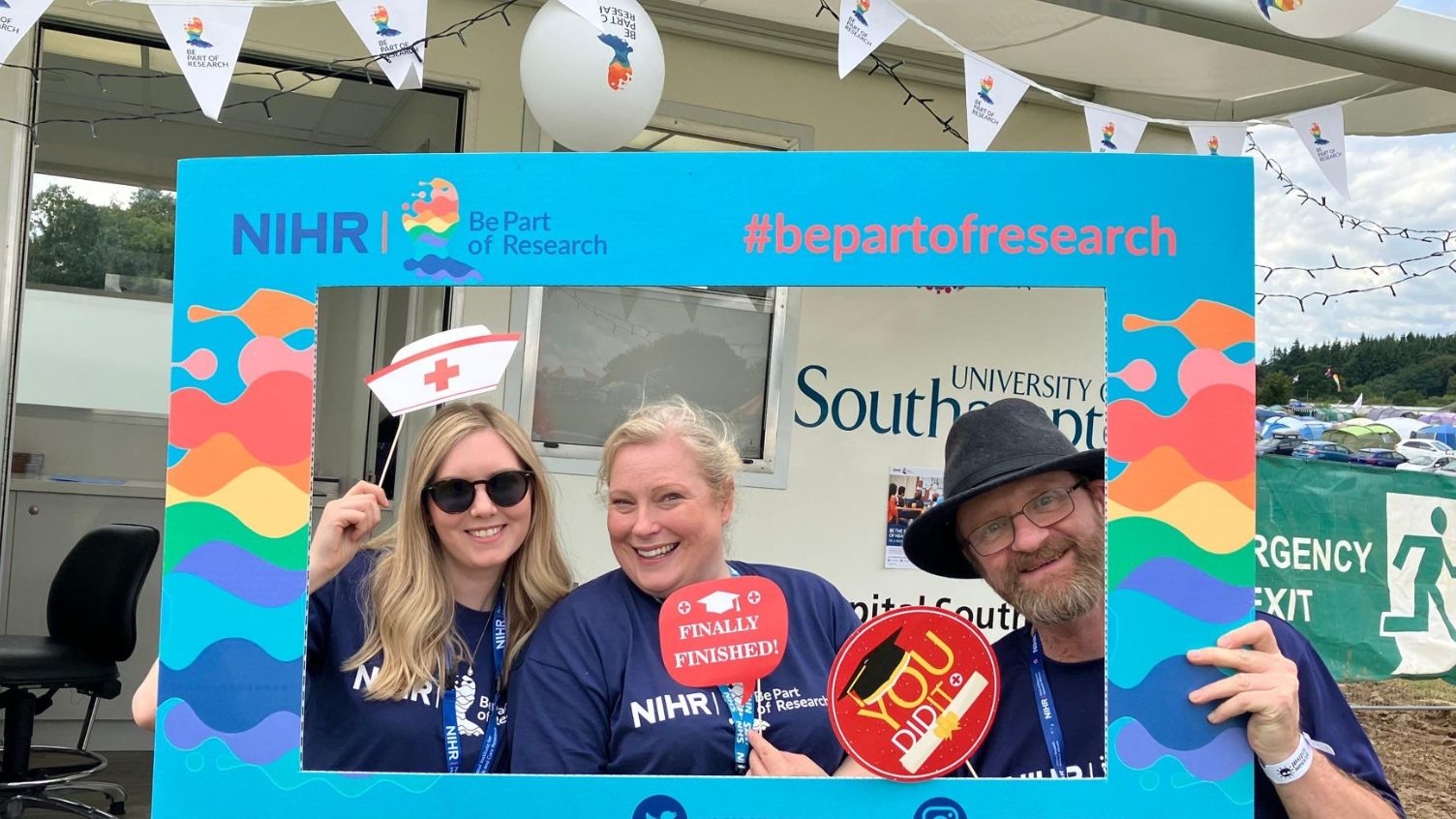Taking part in arm fracture research: Sally’s story
- 18 May 2023
- 3 min read
Milton Keynes' Sally Fennmore took part in the PROFHER-2 study which looks into the most effective ways to treat adults with severe arm fractures.
Taking part in arm fracture research: Sally's story
A Milton Keynes grandmother who broke her arm in 4 places has urged people to consider taking part in research to shape the future of healthcare after seeing a 'significant improvement' in her recovery since joining a local study.
Sally Fennemore spoke ahead of International Clinical Trials Day on 20 May, a day of awareness-raising about the importance of health research.
She said she was pleased to be allocated physiotherapy instead of surgery after fracturing her humerus, the upper arm bone in a fall at a friend's house in October last year.
The Wavendon grandmother-of-two was assessed in A&E, sent home and prescribed morphine. She was contacted the following day by the fracture clinic at Milton Keynes University Hospital and invited to take part in the PROFHER-2 study.
The study - funded by National Institute of Health and Care Research (NIHR) - is comparing surgery to physiotherapy alone for people aged over 65 with serious breaks.
Sally, who had never broken a bone before, said: "It was a very bad break and I felt very scared. It was incredibly painful to move my arm and I was covered in bruises.
"When I spoke with the study team, I was certainly still in shock from the fall. The nurses and doctors were very good at explaining what could be involved in the trial and they put me at ease."
Participants on the study are randomly allocated one of three treatment options:
- Surgery to replace the broken ball at the top of the arm bone and physiotherapy
- Surgery to replace both the ball and socket joint in the shoulder and physiotherapy
- Physiotherapy alone to regain the use of the arm without surgery
Physiotherapy avoids the risks of surgery but it is uncertain whether it is as effective.
Sally, who received an MBE in 2018 for Services to Female Entrepreneurship and is president of her local Women's Institute, Wavendon Belles, was randomly assigned physiotherapy.
She said: "I was so happy that I didn't have to have an operation. I'm terrified of hospitals anyway so having an operation would have been horrendous.
"The physio I saw as part of the trial was excellent. She gave me a lot of exercises to do which were painful and difficult at first because my arm and shoulder were so stiff, but the more I practised at home, the easier it became."
Sally, who ran a PR and event management consultancy in Milton Keynes prior to retiring, said: "I struggled a lot to do everyday things like put my jumper on by myself. After a few weeks of doing the exercises, I could do it by myself again.
"I only had about 6 sessions with the physiotherapist in the end. The trial team were amazed at how quickly I recovered."
Sally has stopped physiotherapy sessions but continues to do the exercises daily at home.
"At an assessment, I was told that my 77-year-old bones are doing very well and that the strength in my arm showed significant improvement.
"I am so grateful for the treatment I received on the study and I'm thrilled with the outcome."
Sally has been married for 29 years to Roger, said: "My husband and I have been very impressed with the communication from the study team. If I had any problems, I could ring the nurses at any time.
"I'd say that taking part in these types of research trials is a good idea. I was very well looked after and felt a bit more in control of my treatment."
The PROFHER-2 study is sponsored by South Tees Hospitals NHS Foundation Trust and is managed by York Trials Unit. It aims to recruit 380 participants from across 66 UK sites. Results have yet to be published.
Participating in health research helps develop new treatments, improve the NHS, public health and social care and save lives.
The NHS, public health and social care supports research by giving patients opportunities to take part in trials. Healthy people can also take part so results can be compared to those with a medical condition.
Patients are also encouraged to ask their doctor or health professional about research opportunities, view trials seeking volunteers and sign up to be contacted about studies at bepartofresearch.uk


